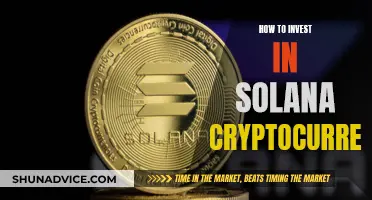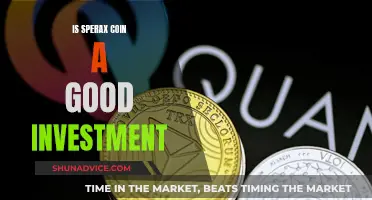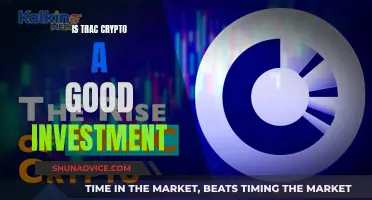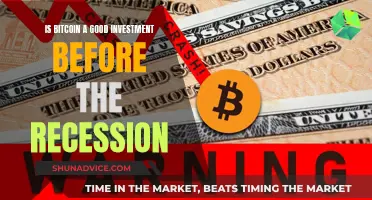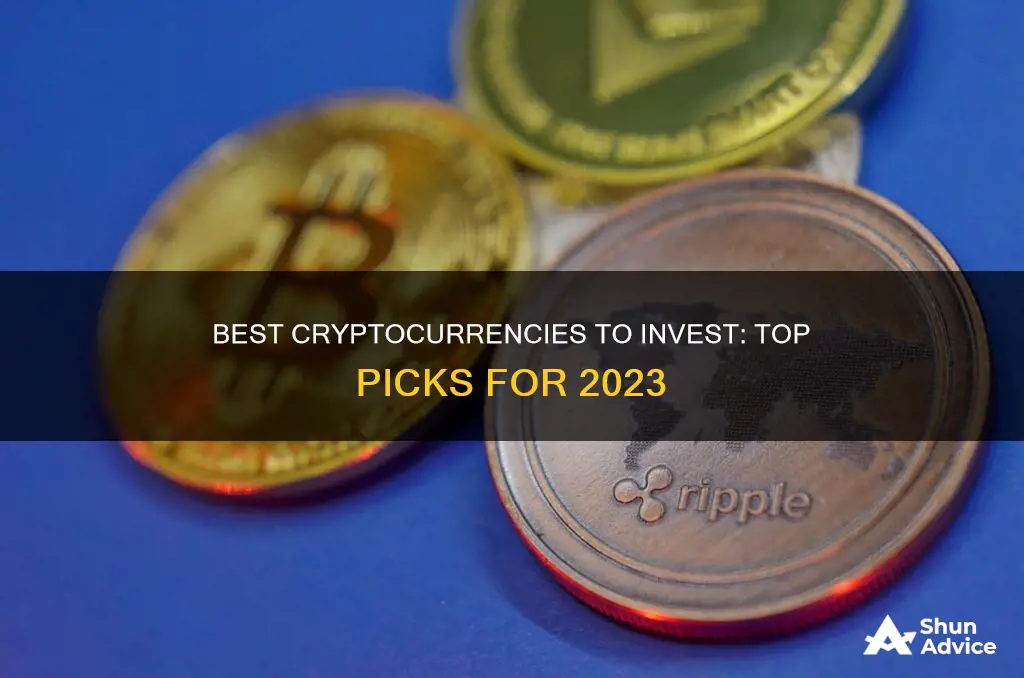
With thousands of cryptocurrencies on the market, it can be challenging to know which ones to invest in. Here is an overview of the top cryptocurrencies to consider, based on market capitalisation and other factors.
Bitcoin (BTC): Created in 2009, Bitcoin is the original cryptocurrency and remains the most popular and valuable, with a market cap of over $1 trillion. It is safe and secure, using blockchain technology, but has been criticised for being energy-intensive.
Ethereum (ETH): Ethereum is the second most dominant cryptocurrency, with a market cap of over $250 billion. It is a blockchain with smart contract functionality, making it attractive to developers. Its native cryptocurrency is Ether.
Binance Coin (BNB): Binance Coin is the native token of Binance, one of the largest crypto exchanges. It can be used for trading, payment processing, and booking travel arrangements. It has grown significantly since its launch in 2017, with a current market cap of around $78 billion.
Solana (SOL): Solana is a decentralised blockchain platform known for its speed and low transaction fees. It is one of the fastest-growing projects in the DeFi space, with a market cap of over $60 billion.
Tether (USDT): Tether is a stablecoin, meaning its value is tied to fiat currencies like the US dollar. This makes it less volatile than other cryptocurrencies, with a market cap of $118 billion.
XRP (Ripple): XRP is a payment solution for banks and financial institutions, offering faster and cheaper transactions than traditional systems. It has a market cap of around $30 billion.
Dogecoin (DOGE): Dogecoin started as a joke but has become one of the most popular meme coins, with a passionate community of supporters, including Elon Musk. It has a market cap of about $14 billion but has unlimited issuance, which can lead to inflation.
TRON (TRX): TRON is a decentralised blockchain platform with a focus on entertainment and content creation. It has a native cryptocurrency, TRX, and a market cap of around $13 billion.
Toncoin (TON): Toncoin is a layer 1 token developed by encrypted messaging company Telegram, with a fast transaction speed of just five seconds. It has a market cap of about $13 billion.
Cardano (ADA): Cardano is a decentralised blockchain project that supports peer-to-peer transactions and smart contracts. It is more energy-efficient than some other cryptocurrencies and has a market cap of around $11 billion.
This list is not exhaustive, and there are many other cryptocurrencies to consider, such as Avalanche, Polkadot, Shiba Inu, and Litecoin. It is important to do thorough research before investing in any cryptocurrency, as the market is highly volatile and unpredictable.
| Characteristics | Values |
|---|---|
| Market Capitalization | $1.08 trillion - $1.2 trillion |
| Year-over-year return | 120% - 128% |
| Use case | Currency, payment, investment |
| Blockchain | Yes |
| Consensus mechanism | Proof of Work |
| Transaction speed | Slow |
| Electricity consumption | High |
| Regulatory scrutiny | High |
| Volatility | High |
| Accessibility | High |
| Community | Large |
What You'll Learn

Bitcoin: the most popular and valuable cryptocurrency
Bitcoin is the most well-known and valuable cryptocurrency. It was created in 2009 by Satoshi Nakamoto, who released it as an open-source software. Anyone can examine the code and add to the Bitcoin network, which is decentralised and not controlled by any central authority.
Bitcoin is a peer-to-peer digital currency that can be transferred securely and instantly between any two people worldwide who accept it. It is like digital cash, but it only exists in digital form.
The total supply of Bitcoin is limited to 21 million coins, with about 19 million in circulation today. This scarcity is part of what makes Bitcoin valuable. Every participant in the Bitcoin network agrees to this rule, making the monetary policy predictable and introducing the concept of digital scarcity.
Bitcoin is also divisible, so if you wanted to transfer just 0.00000001 bitcoins, you could. This makes the number of 21 million bitcoins arbitrary.
Bitcoin transactions are processed and verified using public-key cryptography and proof-of-work. Each transaction is broadcast to the network and included in the Bitcoin blockchain, so that the same bitcoins cannot be spent twice. After an hour or two, each transaction is locked in time by the massive amount of processing power that continues to extend the blockchain.
The Bitcoin blockchain is a shared record of every transaction ever made on its digital accounting book. When person A sends Bitcoin to person B, this transaction is added to a public ledger, which is stored throughout the network. Bitcoin miners confirm transactions to the network by including them in blocks.
Bitcoin is kept secure by the fact that additions to the distributed ledgers must be verified by solving a cryptographic puzzle, a process called proof of work. This also keeps it safe from fraudsters.
Bitcoin's price has skyrocketed as it has become a household name. In May 2016, one bitcoin was worth about $500. As of September 3, 2024, a single bitcoin's price was around $59,125, representing a growth of 11,725%.
Investing in Bitcoin
If you want to invest in Bitcoin, you can buy it from a reputable online exchange or conversion service, or even using physical Bitcoin ATMs in your area. You can also accept bitcoin for goods or services straight into your Bitcoin wallet, or trade in-person.
However, it is important to note that while Bitcoin itself is extremely secure, secondary software such as Bitcoin wallets and exchanges are vulnerable to hacking attacks. Therefore, it is recommended to use hard wallets, which are offline wallets that are not connected to a network, making them far more hacker-resistant.
Cryptocurrency Offerings by Investment Groups: Exploring the Options
You may want to see also

Ethereum: a blockchain with smart contracts
Ethereum is a cryptocurrency and blockchain platform that is a favourite of program developers because of its potential applications, including smart contracts and non-fungible tokens (NFTs). In this article, we will focus on Ethereum's smart contracts.
Smart contracts are self-executing contracts where the conditions of the buyer-seller agreement are directly encoded into lines of code. They are stored on a blockchain, a decentralised, transparent ledger of transactions.
Smart contracts are like contracts in the real world, but they are digital. They are self-executing pieces of code that are activated when the preset conditions are met. For example, a smart contract can be set up to issue a token when someone deposits money.
Smart contracts allow secure and trusted transactions between anonymous parties without consulting a central authority. They automate the process of executing specific conditions when triggered by events, such as a transfer of funds. The requirements are pre-written in the code and enforced automatically once met.
Ethereum smart contracts are written in Solidity, a computer language comparable to JavaScript. The code defines the circumstances under which the contract will be executed and the actions that will be taken if those requirements are satisfied.
For example, a smart contract can be used to transfer ownership of a digital asset from one party to another when specific criteria are met. The buyer sends the agreed-upon amount of cryptocurrency (usually Ether) to the smart contract's address. The smart contract code then verifies whether the conditions of the sale have been met. If they are, the smart contract executes the terms of the agreement automatically.
Benefits of Ethereum smart contracts
Ethereum smart contracts offer numerous benefits to individuals and organisations. They reduce transaction costs and increase efficiency by eliminating the need for intermediaries. The self-executing nature of smart contracts ensures that the terms of an agreement are automatically enforced, increasing the security and transparency of transactions.
Using a decentralised and distributed ledger also eliminates the risk of fraud, as all transactions are recorded on multiple computers and can be audited by anyone.
Industries benefiting from Ethereum smart contracts
Ethereum smart contracts have the potential to revolutionise various sectors by providing secure and efficient solutions for different business processes.
They can be used in the supply chain sector to automate tracking items as they move through the supply chain, increasing efficiency and transparency and lowering the risk of fraud.
In the real estate industry, smart contracts can simplify purchasing and selling property, removing the need for middlemen such as real estate agents.
Ethereum smart contracts can also transform the healthcare industry by securely storing electronic health records (EHRs) on the blockchain and boosting patient data privacy and security.
Companies using Ethereum smart contracts
Several companies have adopted Ethereum smart contracts, including Microsoft, JPMorgan Chase, and Accenture.
The future of Ethereum smart contracts
The future of the Ethereum blockchain looks bright, with expected continued growth and development in the coming years. As more individuals and organisations become aware of the benefits of decentralised technology, we can expect to see a significant increase in Ethereum blockchain adoption.
The expansion of decentralised applications and the development of new use cases, such as decentralised finance and prediction markets, will also contribute to the growth of the Ethereum blockchain.
Ass Coin: A Guide to Investing in the Crypto
You may want to see also

Binance: the largest crypto exchange
Binance is one of the largest crypto exchanges in the world. It offers a wide range of services, including trading, payment processing, and even booking travel arrangements. Binance has its own cryptocurrency, Binance Coin (BNB), which has grown significantly since its launch in 2017.
Binance Coin was initially created to provide benefits to users of the Binance exchange, such as lower fees and exclusive access to initial coin offerings. Today, it powers the BNB Chain ecosystem, which offers high speed and low cost as an alternative to Ethereum.
One of the key advantages of using Binance is the low costs and high throughput of its platform, allowing it to service much greater demand than many competitors. Additionally, owning BNB provides benefits on the Binance exchange platform, such as discounted fees.
However, it is important to note that BNB is a highly centralized token, as it is controlled and managed by Binance. This reduces the freedom available to its community. The success of BNB is closely tied to Binance, which has faced regulatory scrutiny in several countries, including the UK, Japan, and Germany.
Despite these concerns, Binance remains a popular choice for crypto investors and traders due to its wide range of services, low costs, and high throughput.
Bitcoin Investment: Is It Too Late to Invest?
You may want to see also

Cardano: a popular blockchain
When considering the top cryptocurrencies to invest in, Cardano (ADA) stands out as one of the most popular and unique blockchain platforms. Cardano is a decentralized public blockchain and smart contract platform that has grown in popularity and value since its launch in 2017. One of the key features that sets Cardano apart from other blockchains is its rigorous scientific and research-driven approach to development. The platform is built on a robust, layered architecture, with each layer serving a specific function, which enhances its security and flexibility.
The Cardano blockchain is designed to be a more efficient and sustainable alternative to traditional blockchains. It utilizes a proof-of-stake (PoS) consensus mechanism, which is less energy-intensive than the proof-of-work (PoW) mechanism used by Bitcoin and some other cryptocurrencies. This makes Cardano more environmentally friendly and cost-effective. The PoS mechanism also allows for faster transactions and lower fees, making it more scalable and accessible.
One of the core components of the Cardano ecosystem is its native cryptocurrency, ADA. ADA serves as the backbone of the network and is used for all transactions and payments on the blockchain. It is also used to incentivize participants to maintain the network and secure it through the staking process. Cardano's staking mechanism is unique in that it allows users to stake their ADA without having to run a node, making it more accessible to individuals with less technical expertise.
Cardano has a strong and active development team, led by Charles Hoskinson, who is a well-known figure in the cryptocurrency space and one of the co-founders of Ethereum. The development team is constantly working on improving the platform and releasing new updates and features. The roadmap for Cardano includes plans for decentralized applications (dApps), smart contracts, and even a decentralized exchange, making it a versatile and powerful blockchain platform.
Bitcoin Investment: How Much Should You Invest?
You may want to see also

Solana: the blockchain best for NFT and NFT games
Solana is a decentralised blockchain platform that was created with a focus on scalability. It is one of the fastest blockchains on the market, with a transaction speed of almost 65,000 per second. This is achieved through the unique Proof of History consensus mechanism, which allows nodes to synchronise time across the network.
Solana has been one of the fastest-growing projects in the Decentralised Finance (DeFi) space and is widely called an "Ethereum-killer". The platform also has very low transaction fees, with an average of $0.00025.
Solana is particularly well-suited for NFT and NFT gaming projects. Its blockchain is built to support play-to-earn NFT games and will support multi-gigabyte games that run at 30 transactions per second (TPS). Solana is the only blockchain that offers this and continues to lead in performance.
The Solana NFT gaming platform, "The Solana Marketplace", is the first of its kind, allowing players to buy and sell figures with other players on the Solana Network.
There are already a number of popular NFT games on Solana, including:
- Solchicks: A leading play-to-earn NFT and Player vs Player game on Solana, where players use Solchicks NFT collectibles as their characters in a unique gaming metaverse.
- Genopets: The world's first move-to-earn NFT mobile RPG that rewards you for exercising your body and mind through digital progression.
- Star Atlas: A virtual gaming play-to-earn metaverse set in the year 2620, built on the Solana Blockchain.
- Space Falcon: A Sci-Fi NFT-based play-to-earn Metaverse game powered by the Solana Blockchain.
- Project Seed: A mobile-based game that aims to change the industry by implementing blockchain technology and play-to-earn mechanics.
- Defiland: A play-to-earn multi-chain agriculture-simulation game created to gamify Decentralised Finance.
- Cryowar: A real-time multiplayer PVP arena NFT play-to-earn game developed in Unreal Engine and on the Solana network.
- Void: A play-to-earn NFT game run on the Solana ecosystem, defragmenting the world of PVP by uniting players, casts and spectators.
- Zoolana: The first mobile play-to-earn game built on Solana, with a solid roadmap and a lot of announcements for 2022.
- Nyan Heroes: An NFT play-to-earn metaverse game on Solana Blockchain, backed by marquee crypto investors and with AAA quality gameplay.
Solana's speed, low transaction fees, and support for multi-gigabyte games make it an attractive choice for NFT and NFT gaming projects, and it will be interesting to see its continued growth in this space.
Coinexchange: The Best Place to Invest Your Money?
You may want to see also
Frequently asked questions
Bitcoin is the oldest and most popular cryptocurrency. It was created in 2009 and has since gained the attention of investors, the media, and businesses.
After Bitcoin, Ethereum has established itself as one of the most dominant forces in the crypto market. It was the first to introduce smart contract functionality, which enables developers to create and automate several key features.
A stablecoin is a type of cryptocurrency that is pegged to a stable asset, such as the US dollar, to prevent extreme volatility. Examples of stablecoins include Tether and USD Coin.
A "meme coin" is a cryptocurrency that gains popularity based on internet memes and social media trends rather than intrinsic value. An example of a "meme coin" is Dogecoin, which was originally started as a joke on Bitcoin.
Some popular platforms for investing in cryptocurrency include Coinbase, Kraken, Gemini, Bitstamp, eToro, and Crypto.com. These platforms offer a range of features, such as a wide selection of tokens, low fees, and user-friendly interfaces.



